Removal Procedure
Important: Do not raise the engine by the crankshaft balancer to perform this service procedure. Damage to the crankshaft balancer or the crankshaft may occur.
- Remove the front differential, if equipped with four wheel drive (4WD). Refer to Differential Carrier Assembly Replacement in Front Drive Axle.
- Remove the starter motor. Refer to Starter Motor Replacement in Engine Electrical.
- Remove the oil pan skid plate bolts.
- Remove the oil pan skid plate.
- If equipped with 4WD, remove the crossbar bolts.
- Remove the crossbar.
- If equipped with two wheel drive (2WD), remove the crossbar bolts.
- Remove the crossbar.
- Drain the engine oil. Refer to Engine Oil and Oil Filter Replacement .
- Remove the oil level indicator tube. Refer to Oil Level Indicator and Tube Replacement .
- Disconnect the oil level sensor electrical connector (2).
- Remove the harness clip from the positive cable clip.
- Remove the oil level sensor.
- Remove the battery cable channel bolt.
- Remove and reposition the battery cable channel.
- Remove the oil pan bolts.
- Remove the oil pan and gasket.
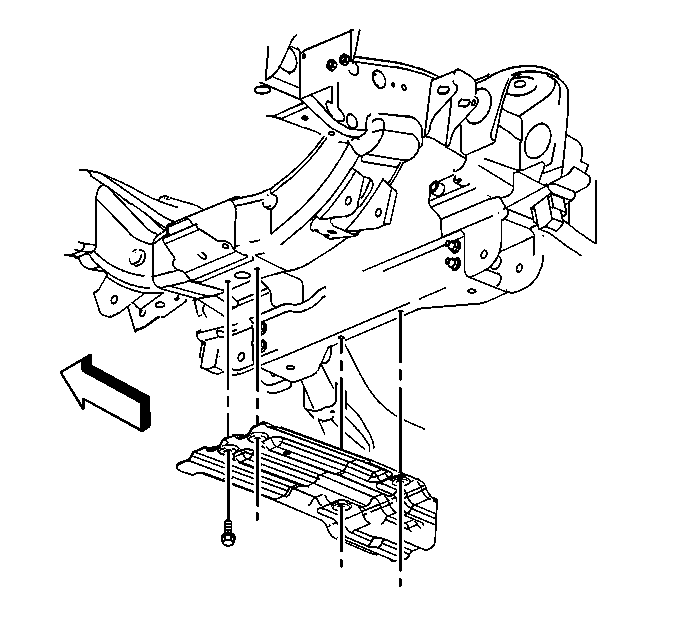
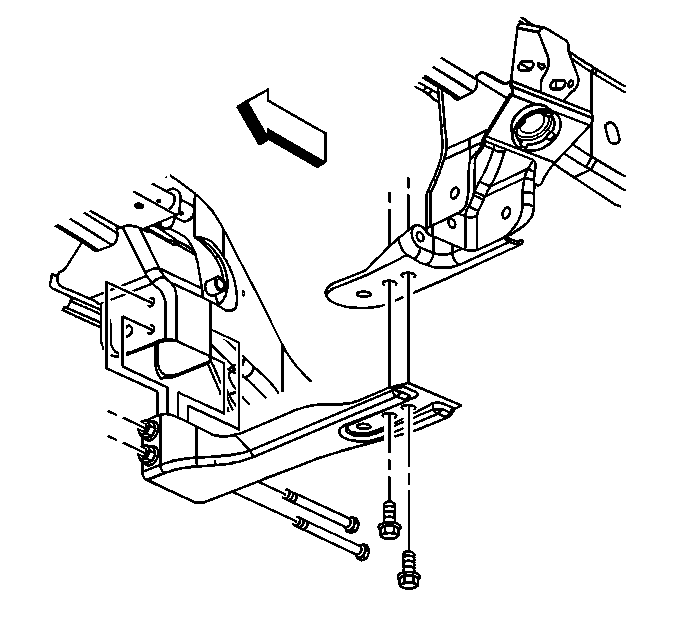
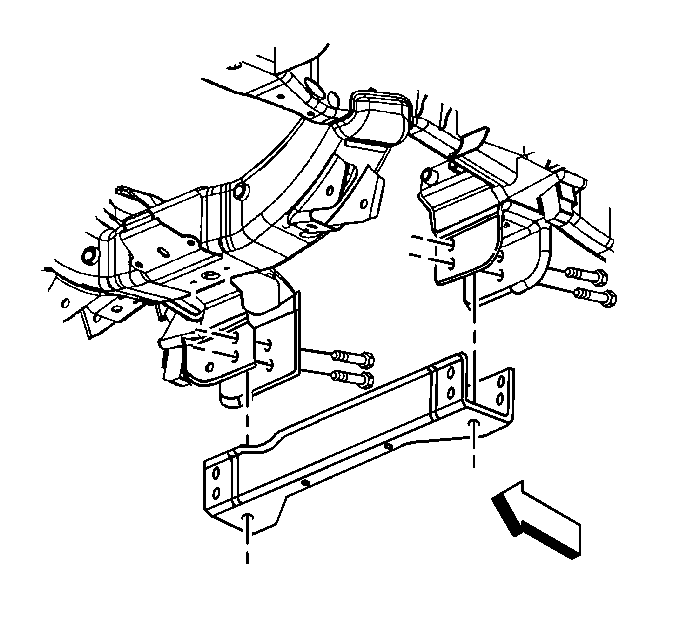
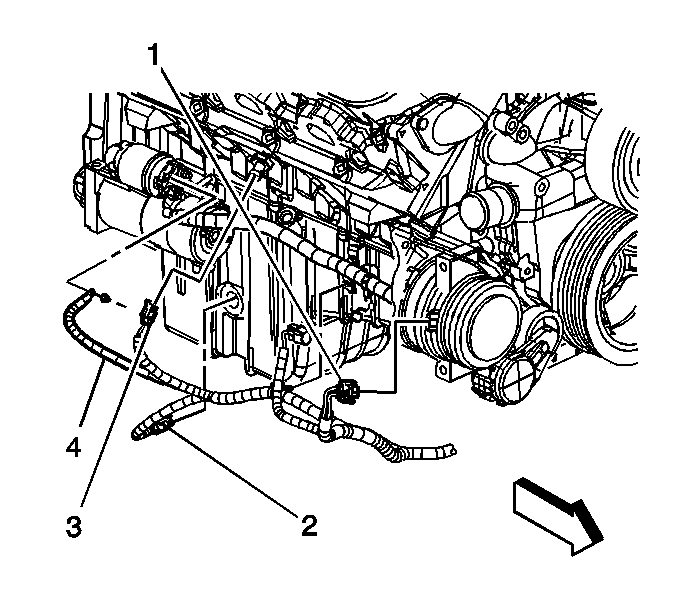
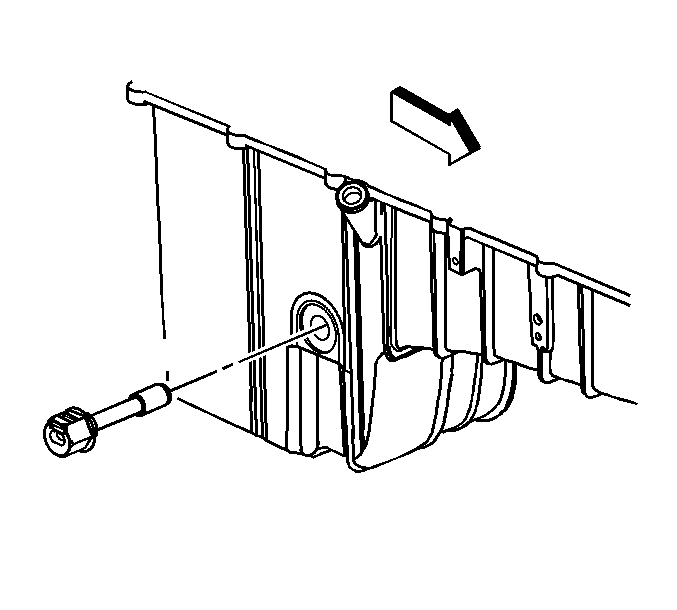
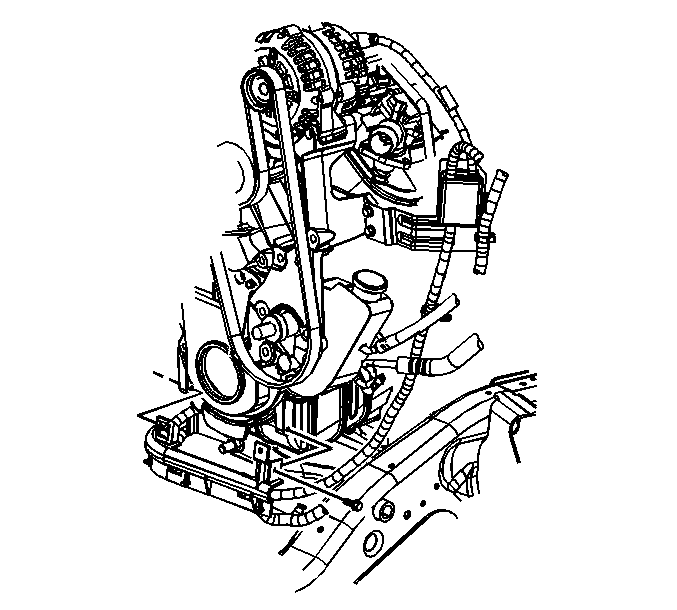
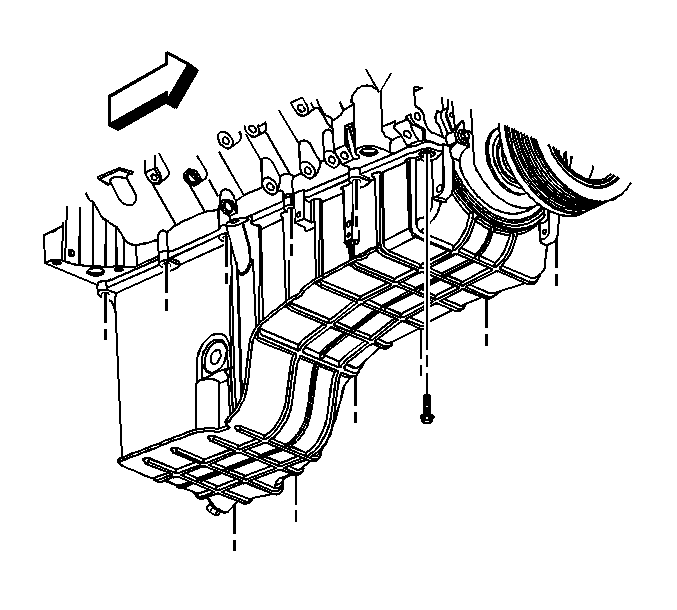
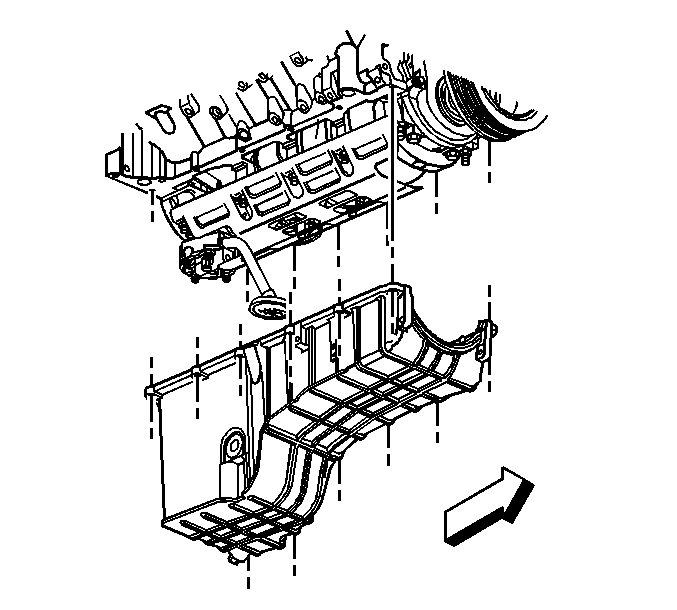
Important: The oil pan gasket is reusable if not cut or damaged.
Installation Procedure
Important: The oil pan must be installed within 5 minutes of the sealer being applied or the sealer will begin to cure, causing an inadequate seal.
- Apply sealant GM P/N 12346286 (Canadian P/N 10953472), or equivalent to the sides of the front (2) and rear (1) crankshaft bearing caps, on both the left and right sides (4 locations total).
- Install a NEW oil pan gasket into the oil pan groove, if required.
- Install the oil pan.
- Install the oil pan bolts until snug.
- Tighten the oil pan bolts.
- Tighten the bolts in sequence a first pass to 10 N·m (89 lb in).
- Tighten the bolts in sequence a final pass to 25 N·m (18 lb ft).
- Position the battery cable channel into place.
- Install the battery cable channel bolt.
- Install the oil level sensor.
- Install the harness clip to the positive cable clip.
- Connect the oil level sensor electrical connector (2).
- Install the oil level indicator tube. Refer to Oil Level Indicator and Tube Replacement .
- Fill the engine with oil. Refer to Engine Oil and Oil Filter Replacement .
- If equipped with 2WD, install the crossbar.
- Install the crossbar bolts.
- If equipped with 4WD, install the crossbar.
- Install the crossbar bolts.
- Install the oil pan skid plate.
- Install the oil pan skid plate bolts.
- Install the starter motor. Refer to Starter Motor Replacement in Engine Electrical.
- Install the front differential, if equipped with 4WD. Refer to Differential Carrier Assembly Replacement in Front Drive Axle.
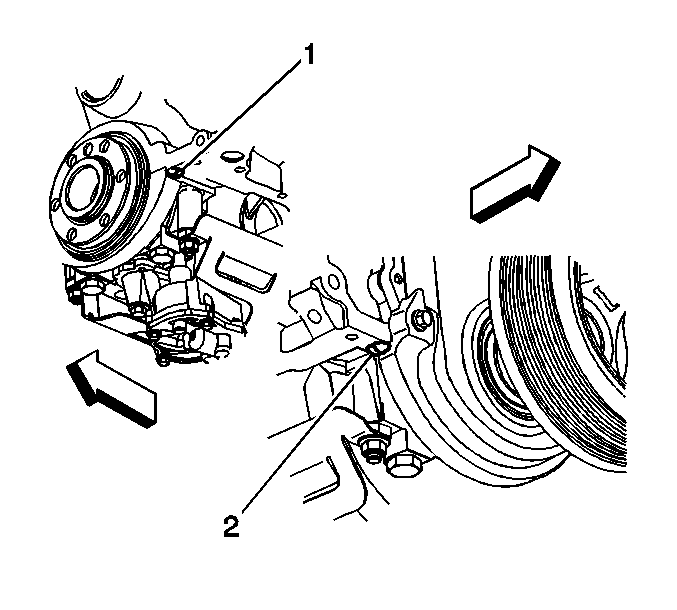


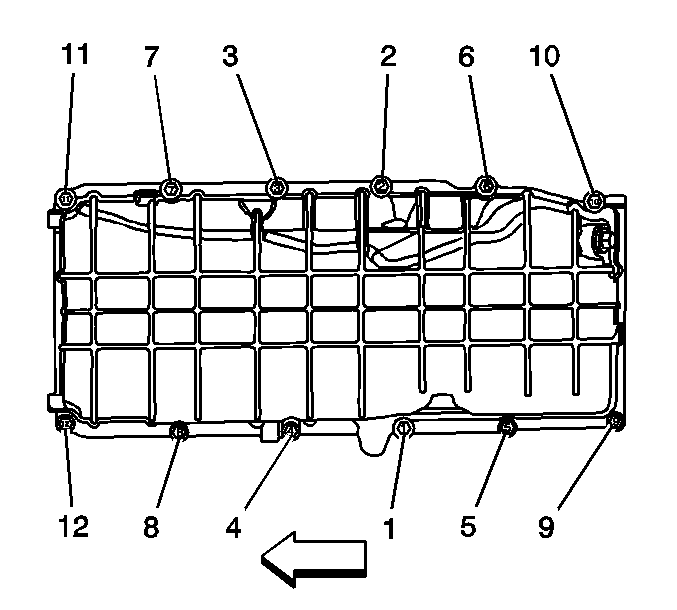
Notice: Use the correct fastener in the correct location. Replacement fasteners must be the correct part number for that application. Fasteners requiring replacement or fasteners requiring the use of thread locking compound or sealant are identified in the service procedure. Do not use paints, lubricants, or corrosion inhibitors on fasteners or fastener joint surfaces unless specified. These coatings affect fastener torque and joint clamping force and may damage the fastener. Use the correct tightening sequence and specifications when installing fasteners in order to avoid damage to parts and systems.
Tighten

Tighten
Tighten the bolt to 9 N·m (80 lb in).

Tighten
Tighten the sensor to 20 N·m (15 lb ft).


Tighten
Tighten the bolts to 100 N·m (74 lb ft).

Tighten
Tighten the bolts to 100 N·m (74 lb ft).

Tighten
Tighten the bolts to 20 N·m (15 lb ft).
